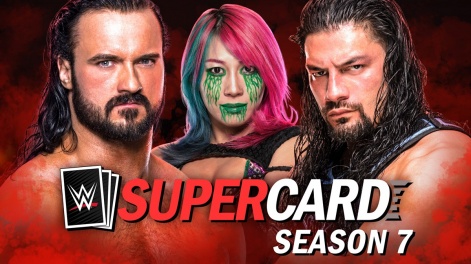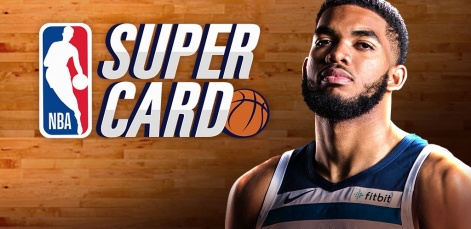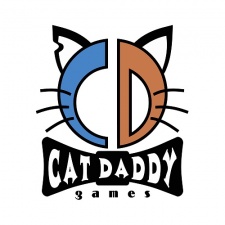Cat Daddy Games might not be a studio that immediately jumps to mind when you think about long-term video game developers, yet 2021 will see it celebrate its 25th anniversary in the business. Quite an achievement, considering how many game firms close every year.
Starting off with simulation games on Windows before moving to console - with mega-hit Carnival Games on Nintendo Wii leading the line - mobile has now become the company's main output, and has been for nearly a decade. Primarily focused on collectible sports titles, Cat Daddy has carved out a nice niché for itself.
Looking to replicate the huge success off the back of WWE SuperCard (21 million downloads to date) the newest title arrives in the form of free-to-play NBA SuperCard, featuring iconic NBA and WNBA stars. It's a massively lucrative sport. One that stands as the third most popular in terms of revenue in the US.
To find out more, we spoke with Cat Daddy Games co-founders Harley Howe and Patrick Wilkinson, as well as how the Washington-based studio has survived for 25-years and whether being acquired by Take-Two Interactive was the right call.
PocketGamer.biz: The studio's first mobile title was 'Comedy Central's Indecision Game' in 2012, how did this come about? What was development like?
Harley Howe: We spent a lot of time on traditional hardware learning the ins and outs of the Nintendo Wii, Xbox and Nintendo DS, and what makes audiences on those platforms excited. When we took a step back to think about what we should do next, it wasn’t readily apparent that mobile gaming was going to redefine the industry but we had a good idea that it was going to be a big deal. So, we invested in it.
It wasn’t readily apparent that mobile gaming was going to redefine the industry but we had a good idea that it was going to be a big deal. So, we invested in it.Harley Howe
Patrick Wilkinson: It was an exciting problem to solve - what do people want to do on their phones, how do you make a compelling experience, and what kind of games could we make? The 2012 election was that fall, and what makes people more passionate than debating politics! It was also our first opportunity to have a fully client-server game that runs as a live service in the cloud.
Harley Howe: We spent time looking at other products and listening to consumers. Then, we started to look at how we could innovate in the space. The rest is kind of history. That game was our take on what made that content appealing to its fans and taught us some good lessons on how to do it.
Do you remember the studio being acquired by Take-Two in 2003? Was that a difficult decision to make?
Harley Howe: Take-Two is an incredible partner in many, many different ways and as a publisher it seriously values creative endeavours and accountability, and provides all the support structure for success. As an independent developer at the time, it was a no-brainer to join and get access to all the resources that Take-Two provides.
Patrick Wilkinson: At the time of the sale, unbeknownst to us, one of the publishers we were working with was having financial trouble. The day after we closed the deal with Take-Two, this troubled publisher called us up to tell us they were going to have to pull out of our contract. They were already behind on paying us our milestone payments. All sellers remorse was gone in that moment because that is the exact sort of roller coaster ride that motivated us to sell in the first place.
Can you talk to us about the many partnerships at Cat Daddy Games? Any interesting or memorable stories to license an IP?
Harley Howe: The original idea for WWE SuperCard was for it to be a companion app to the console game. But it became much more as we designed and iterated on the concept. It began feeling like its own title and had its own unique hooks and gameplay while appealing to the same core audience.

Patrick Wilkinson: Our very first licensed IP was for a 'Strong Man' competition. It was quite a kick to go to see a competition and meet all of those real-life giants in person.
What would you say was the most challenging IP to either work on or getting the licensing rights for?
Harley Howe: Honestly, the most challenging thing about working with an IP is meeting fan expectations. With WWE SuperCard, for example, we created an out of the box collectible card game that appeals to WWE fans of all ages. There are millions of WWE fans encompassing multiple generations of fandom out there, so the sheer variety of fans is vast, complicated and fun to tackle.
We want all Macho Man fans who remember his high-flying style and incredible promos to feel like they can jump into WWE SuperCard and play as their favourite guy in the same way that we want all the New Day, Roman Reigns and John Cena fans to be able to jump in and deliver spears, Attitude Adjustments, and bring down Money in the Bank briefcases.
In the 'old days’ there was a lot more variety in the types of games we would make because it would take months to really know if a game was successful and worthy of a sequel.Patrick Wilkinson
Patrick Wilkinson: The challenge is figuring out how to offer a little bit of everything and yet bring that depth of the experience together, coherently, for everyone.
Our engine is really robust and affords us the ability to create new content like modes or events or card tech quickly so we can assess its strengths. Plus, all of the developer team is constantly trying out new ideas for all types of players.
What was the decision behind moving into the collectable card-battling genre?
Harley Howe: Collecting cards (or comics or toys or whatever) is such an ingrained part of fan culture and it’s such an accessible way to showcase your love of a type of entertainment. That was definitely part of our motivation but there’s also something bigger to cards that is sorta undefinable.
When you see an image on a card, you sometimes feel an emotional connection. You remember that moment and experience it again just like it happened yesterday. You feel all the emotions of that person’s successes or that team’s season. You may remember where you were or who you were with.
Patrick Wilkinson: With card battle games, we get to layer a progression system on top of all that. Not only do you have this great iconic image that’s important to you; you’re now directly making that card better over time and adding your own personal touch to it. It’s a fun space to explore.
How would you compare Cat Daddy Games' first 10 to 15 years to the most recent decade, where there has become more of a reliance on the WWE SuperCard, MyNBA and NHL brands?
Patrick Wilkinson: In the 'old days’ there was a lot more variety in the types of games we would make because it would take months to really know if a game was successful and worthy of a sequel. Nowadays, you can tell within a week of a launch and sometimes just from a soft launch, so the development never stops.
We find ourselves innovating a lot more within the scope of one game than we did historically. Even in the last decade, we’ve released a dozen mobile apps and even a couple VR apps that you likely will have never heard of. Cat Daddy explores, innovates and strives to try new and big things, having a successful mobile lineup gives us a safety net to work from. Most recently, we launched WWE SuperCard on Facebook Cloud Gaming.
Harley Howe: Beyond that, over the last decade, we’ve spent a lot of time interacting with fans and iterating on our current products. WWE SuperCard is entering its seventh season. NBA 2K Mobile is kicking off its third. We look forward to future WWE SuperCard Seasons just as much as we do trying out new handsets, brand new platforms, and new opportunities.
Are there any new genres you would like to personally explore outside of collectable card-battling and sports?
Harley Howe: There are! But you’ll have to wait and see on that.
How has the studio coped under the pandemic? Would you say this has been the biggest threat to the studio's safety since its formation?
Harley Howe: I’d argue that the biggest threat to any types of creative endeavour is stagnation. You don’t want to find yourself kicking back five years after a success going "yup, that was awesome" and not trying to move the needle in any meaningful way.
Patrick Wilkinson: That goes back to the point about trying new things. After Carnival Games on the Wii, we started to work on this new thing called mobile. And now we’re investing resources into the cloud, VR and newer gaming experiences.
I’d argue that the biggest threat to any types of creative endeavour is stagnation.Harley Howe
With game studios commonly facing closure if even one game doesn't perform, how has Cat Daddy Games survived for 25 years?
Harley Howe: We don’t put all the eggs into a single basket. We’re constantly trying out new ideas, new platforms, and not resting on previous successes.
Pat Wilkinson: We’re always investing in new technology, checking out the latest devices, and keeping our ears out for what people are the most excited about and what our partners are doing next.
What would you say is Cat Daddy Games' biggest achievement during its 25 years?
Harley Howe: It’s more than just a singular game or experience to me. Our biggest achievement is a combo of having a great team and a commitment to success above and beyond what we did the last time. I don’t want to downplay what we’ve accomplished in the past - it’s just that we want to grow and learn all the time, and apply it to what’s next.
Patrick Wilkinson: The amount of different experiences we’ve created for players of all types with a variety of interests and the technology that we’ve put together to support that is something that I’m passionate about and proud of doing. We’ve put a lot of smiles on faces and continue to iterate and move the bar.
What can you tell us about NBA SuperCard? What platforms will it launch on? Who is its core audience?
Patrick Wilkinson: NBA SuperCard launched on December 9th, 2020 across Google Play and the App Store. We’re really happy to get it out there in the world for NBA fans of all types - collectors, hardcore fans, and fans of our spin on the CCG genre. It’s got a little something for everyone.

Harley Howe: And we’re just getting started. We’ll be carefully listening to players and reviewing their feedback for future updates and releases.
Alongside NBA 2K SuperCard, what can we expect over the next 12 months from Cat Daddy Games?
Harley Howe: We’ll continue working on our games and creating new experiences. We also continue to support our games long after launch.
Take WWE SuperCard, for example, seven seasons in and we’re still rolling out new game modes, features and quality improvements to a very dedicated community of players who continue to support us as well. We’re also celebrating our third season of NBA 2K Mobile, so expect more content all around!





















